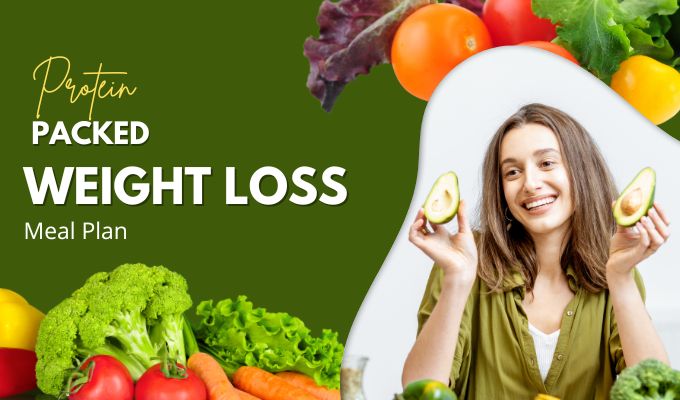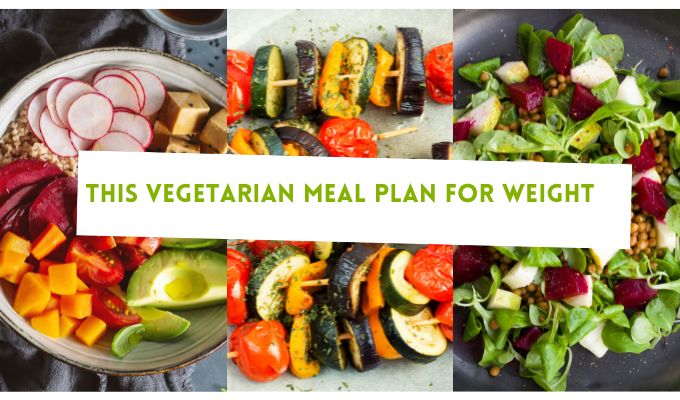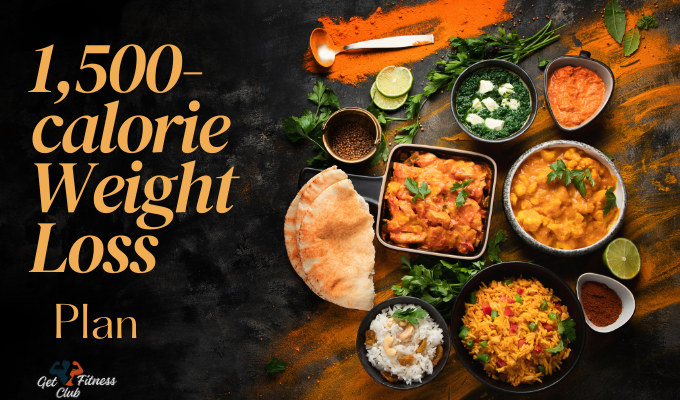Embarking on a weight loss journey? Picture this: savoring delicious meals while shedding those extra pounds effortlessly. Enter the realm of our “Protein-Packed Weight Loss Meal Plan.” This isn’t just a diet; it’s a flavorful expedition towards a healthier you. Say goodbye to bland, restrictive eating, and welcome a menu bursting with protein-packed goodness. Our plan isn’t about deprivation; it’s a celebration of smart choices. Imagine relishing tasty dishes that keep you full and fuel your weight loss goals. Get ready to redefine how you perceive diets—discover the power of a High-Protein Meal Plan in your transformative journey!

High-Protein Meal Plan to Help Lose Weight:
If you’re looking to shed those extra pounds while maintaining muscle mass, a high-protein meal plan can be a game-changer. Protein not only keeps you full and satisfied but also helps your body burn more calories during digestion. Follow this guide for a week-long high-protein meal plan to kickstart your weight loss journey.
High-Protein Good-for-Your-Belly Foods:
Include the following protein-packed foods in your meal plan:
Lean meats (chicken, turkey, lean beef)
Fish (salmon, tuna, cod)
Eggs
Greek yogurt
Cottage cheese
Tofu and tempeh
Lentils and beans
Nuts and seeds
How to Meal-Prep Your Week of Meals:
Effective meal preparation is crucial for staying on track. Follow these steps to prep your meals for the week:
Plan Your Menu: Create a weekly menu that includes a variety of high-protein foods.
Grocery Shopping: Purchase all the necessary ingredients in advance.
Batch Cooking: Cook protein sources in large batches. Grill chicken, bake fish, or prepare a big pot of lentils.
Portion Control: Divide your meals into individual portions to avoid overeating.
Storage: Store your meals in airtight containers in the refrigerator or freezer.

Day 1:
Breakfast (274 calories): Scrambled eggs with spinach and tomatoes.
A.M. Snack (64 calories): Greek yogurt with a handful of almonds.
Lunch (366 calories): Grilled chicken breast with quinoa and roasted vegetables.
P.M. Snack (131 calories): Cottage cheese with pineapple chunks.
Dinner (374 calories): Baked salmon with sweet potato and steamed broccoli.
Day 2:
Breakfast (274 calories): Omelette with mushrooms and feta cheese.
A.M. Snack (96 calories): Sliced turkey with cucumber.
Lunch (377 calories): Tuna salad with mixed greens and olive oil dressing.
P.M. Snack (97 calories): Edamame beans.
Dinner (374 calories): Stir-fried tofu with broccoli and brown rice.
Day 3:
Breakfast (281 calories): Protein smoothie with banana and almond milk.
A.M. Snack (51 calories): Hard-boiled eggs.
Lunch (377 calories): Lentil soup with a side of whole-grain bread.
P.M. Snack (88 calories): Carrot and celery sticks with hummus.
Dinner (425 calories): Grilled shrimp with quinoa and asparagus.
Day 4:
Breakfast (287 calories): Cottage cheese and fruit bowl.
A.M. Snack (95 calories): Turkey jerky.
Lunch (377 calories): Chicken Caesar salad with a light dressing.
P.M. Snack (41 calories): Sugar snap peas.
Dinner (411 calories): Beef stir-fry with mixed vegetables.

Day 5:
Breakfast (281 calories): Yogurt parfait with berries and granola.
A.M. Snack (133 calories): Protein bar.
Lunch (377 calories): Quinoa-stuffed bell peppers.
P.M. Snack (14 calories): Cucumber slices with tzatziki.
Dinner (418 calories): Baked cod with sweet potato fries.
Day 6:
Breakfast (287 calories): Scrambled eggs with smoked salmon.
A.M. Snack (84 calories): Almond butter on rice cakes.
Lunch (314 calories): Turkey and avocado wrap.
P.M. Snack (16 calories): Cherry tomatoes.
Dinner (511 calories): Grilled steak with roasted Brussels sprouts.
Day 7:
Breakfast (281 calories): Protein pancakes with berries.
A.M. Snack (100 calories): String cheese.
Lunch (314 calories): Chickpea salad with feta cheese.
P.M. Snack (35 calories): Mixed nuts.
Dinner (463 calories): Baked chicken with quinoa and green beans.
Conclusion:
In conclusion, a high-protein meal plan is a effective strategy for weight loss. Its benefits include increased satiety, enhanced thermogenesis, and preservation of lean muscle mass. Incorporating lean protein sources promotes a nutritionally dense diet. The thermic effect of protein aids calorie expenditure, while muscle preservation supports long-term weight management. However, it’s crucial to maintain a balanced diet with diverse nutrients. In tandem with regular exercise, a high-protein meal plan can be a valuable tool for achieving and sustaining a hea

lthy weightA healthcare professional can provide personalized guidance.
FAQS:
Q1:Can you lose weight eating high protein meals?
Yes, you can lose weight by incorporating high-protein meals into your diet. Protein is known to increase satiety, boost metabolism, and help preserve lean muscle mass during weight loss.
Q2:What is the best protein to eat to lose weight?
The best proteins to eat for weight loss are lean sources, such as chicken, turkey, fish, tofu, beans, and low-fat dairy products. There is a high level of protein in these options with fewer calories and saturated fats than other options.
Q3:How to get 70g of protein a day?
To get 70g of protein a day, include a variety of protein-rich foods in your meals, such as poultry, fish, eggs, dairy, legumes, and plant-based protein sources like tofu or quinoa.
Q4:How do I get 90 grams of protein a day?
To achieve a daily intake of 90g of protein, focus on incorporating larger protein servings into your meals and snacks. Include sources like lean meats, dairy, eggs, legumes, and protein-rich snacks such as Greek yogurt or protein bars.


